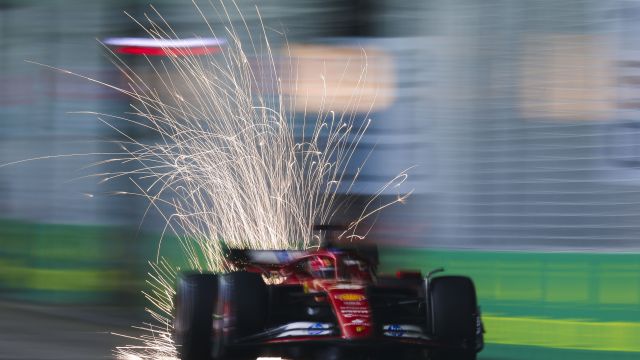Just In: FIA Bans Ferrari, Mercedes ‘Skid Block’ Protec…read more

FIA Bans Ferrari, Mercedes ‘Skid Block’ Protec…read more
The FIA has introduced a surprise ban on specific protective measures for the skid blocks beneath Formula 1’s 2024-spec cars, impacting several teams as the season nears its end. This decision is expected to have significant implications for car performance in the upcoming races.
In the current ground-effect era, teams aim to run their cars as close to the track surface as possible to maximize aerodynamic efficiency. However, this aggressive setup risks excessive wear to the car’s underfloor skid blocks, which could render the cars non-compliant with technical regulations. To counteract this issue, many teams reportedly developed protective solutions to preserve their skid blocks.
According to Michael Schmidt, a journalist with Auto Motor und Sport, nearly half of the grid believed they had exploited a regulatory loophole to implement these protective measures. Schmidt revealed that Red Bull Racing raised concerns about these innovations, specifically targeting rivals Ferrari, Mercedes, and Haas. Red Bull reportedly warned the FIA that if action wasn’t taken, formal protests could follow.
In response, the FIA issued a technical directive to all teams just one week before the Las Vegas Grand Prix. The directive clarified that the protective elements in question were deemed illegal under the current regulations. Schmidt disclosed, “The FIA announced that the protective skids in question were not permitted.”
Ferrari reportedly lobbied for the enforcement of the ban to be postponed until the Qatar Grand Prix, hoping to mitigate its impact on their performance. However, their request was denied, and the ban took immediate effect.
This ruling could force affected teams, particularly Ferrari, to adjust their car setups by raising the ride height to comply with the new regulations. Such adjustments are likely to result in a loss of performance, particularly in terms of aerodynamics and lap times, over the season’s final three races.
The FIA’s decision highlights the ongoing battle between teams and regulators as they push the boundaries of technical innovation. While some teams, like Red Bull, appear to have taken the moral high ground by reporting potential rule breaches, others may see this as a strategic move to hinder rivals.
With the championship entering its final stages, the ban introduces an additional variable that could influence the competitive landscape, particularly for Ferrari and Mercedes, as they fight to close the gap on Red Bull.







